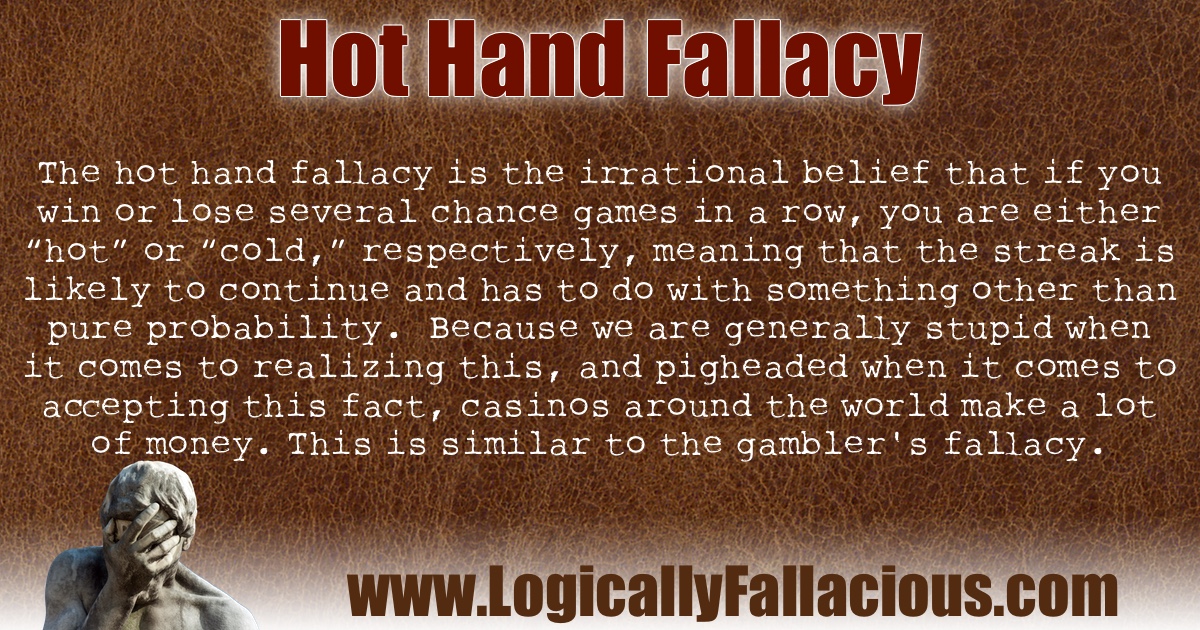(also known as: hot hand phenomenon)
Description: The hot hand fallacy is the irrational belief that if you win or lose several chance games in a row, you are either “hot” or “cold,” respectively, meaning that the streak is likely to continue and has to do with something other than pure probability. Because we are generally stupid when it comes to realizing this, and pigheaded when it comes to accepting this fact, casinos around the world make a lot of money. This is similar to the gambler’s fallacy.
Logical Form:
Person 1 has won a probability game X times in a row.
Therefore, person 1 is "hot" and likely to win again the next game.
Example #1:
Marta: (shooting craps) Let's just cash in now. We did great, but let's quit while we're ahead.
Carlos: Forget it! We are hot! Let's see how long this streak will last!
Explanation: Statistically, Carlos and Marta are more likely to lose the next game since a) their "streak" is probability-based, not talent-based and b) the odds are against them in the game of craps. Carlos is incorrectly viewing the string of wins as a streak that is more likely to continue than not.
Example #2:
There are examples based on events that are not purely probabilistic, such as shooting baskets in the game of basketball. These examples are controversial because although some of the success, some of the time can be attributed to probability alone, there is no question that talent and belief can affect the outcome.
Fun Fact: The belief that you are "on fire" (i.e., performing exceptionally well) can lead to better performance, via the self-fulfilling prophecy. There are times when thinking too critically can negatively affect performance.
Exception: As mentioned, a streak of favorable talent-based actions can be the result of superior physical and mental performance.

References:
The Hot Hand Fallacy: Cognitive Mistakes or Equilibrium Adjustments? Evidence from Baseball. (n.d.). Retrieved from https://www.gsb.stanford.edu/faculty-research/working-papers/hot-hand-fallacy-cognitive-mistakes-or-equilibrium-adjustments
Questions about this fallacy? Ask our community!